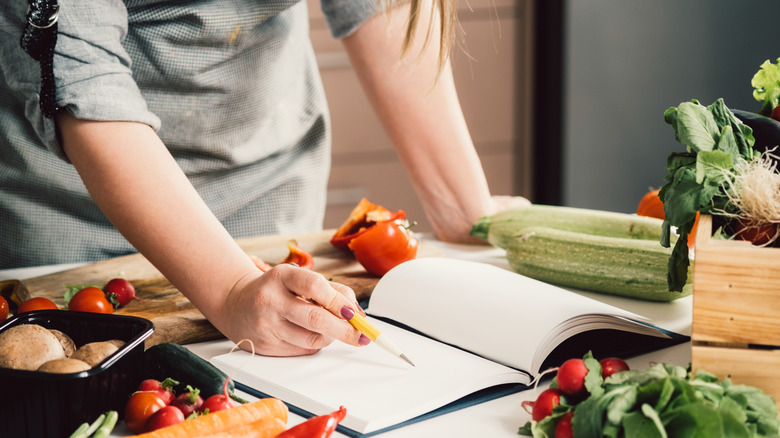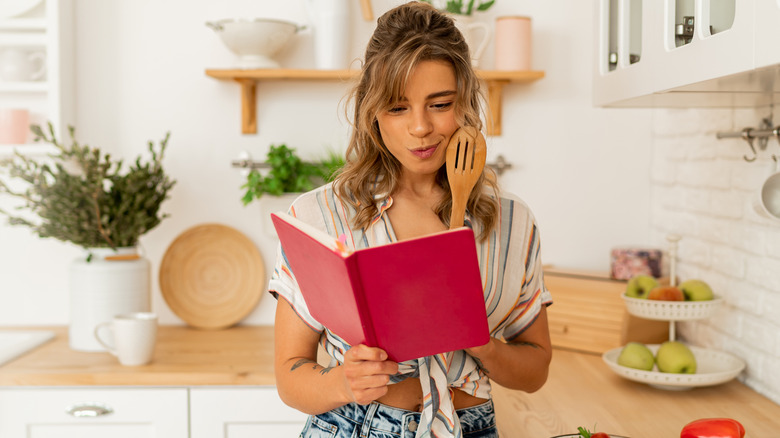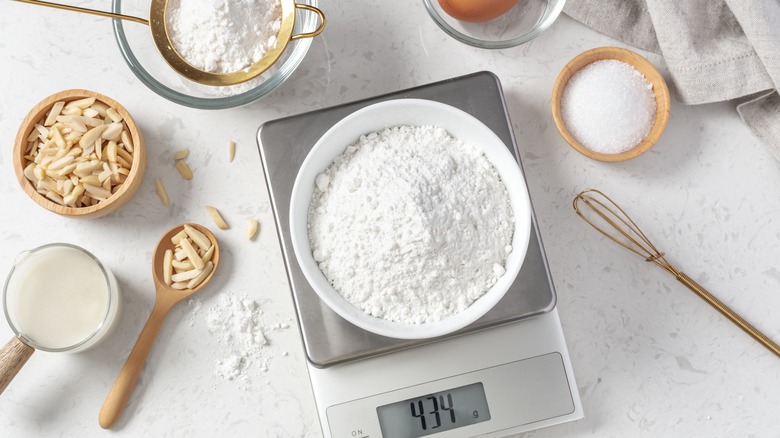The Huge Mistake You're Making When Using A Recipe
Any of you who have decided to try making a delicious meal, whether for yourself or friends and family, are undoubtedly familiar with the numerous pitfalls that can trip you up. All it takes is a minor mixup to take your dish from delicious to disastrous. However, being familiar with some mistakes you may be making in the kitchen can help you avoid these issues.
At first glance, many recipes can be overwhelming, but once you dive in, you'll likely find each step is doable. Much of your cooking consternation can be avoided through careful and thorough planning. In fact, every element of a recipe, from the time frame needed to the preparation of individual ingredients and even the tools you need, can and should be thought out before you start making a meal. Ensure you thoroughly read through and understand your chosen recipe to guarantee you're ready to cook.
Why reading recipes is so essential
Even if you're a competent chef and have fully mastered the many basic cooking methods, you've probably noticed that many dishes you attempt to make inevitably have one component that ends up less than ideal. Reading recipes is the best way to make sure that every piece of your dish turns out properly.
Unless you're still in school, it's probably been a while since you thoroughly engaged with textual fixtures like commas and other punctuation. When you're cooking, these markings become as important as when you were learning to write. For example, a recipe direction could ask you to include one teaspoon of coarsely ground sea salt. Pay attention to that comma, which indicates that you should measure out the peppercorn before grinding.
One of the most prevalent kitchen errors is missing a particular element of the recipe, which could happen when you don't have the ingredient in question or simply forget to add it. Additionally, even if you do have the necessary components, it could be that they've either expired or are less than fresh. If you read the recipe, you can resolve these problems before you've committed yourself to cooking.
Cooking requires logistical precision
Failing to read the recipe is also one of the most common mistakes in baking. In fact, given how fickle some baked goods can be, making measurement mistakes can truly destroy your dessert. Though accuracy can be less critical when cooking, making sure you're adding the amounts outlined in the recipe is still important. Investing in a scale is one way to ensure that your ingredient inclusion is accurate because weight is a more precise measurement method than volume.
There are myriad practical considerations to take into account when cooking that go beyond measurements. Reading recipes can allow you to plan out the time frame of your dish's preparation and allow you to collect all of the kitchen tools that your recipe requires. Can you imagine how frustrating it would be to bust your butt whipping up a batter only to find that you don't have a baking pan? You could even have all the required implements but find that your pot is too small for your chosen recipe. Reading the recipe in advance is the only surefire way to circumvent these issues.


